One of my first questions when I started allotment gardening was: What is mulch? Everything I read assumed that everyone already knew, but I had no idea!
If you’re in the same boat, this post will provide you with the essential knowledge. I specifically wanted to know about organic mulch options and which would be best for my own allotment garden.
What is Mulch?
In short, mulch is a material spread over the soil surface to protect and improve it. It can be made from organic or inorganic materials.
Types of Mulch
Organic Mulch
Organic mulch is derived from plant materials and naturally decomposes over time, adding organic matter to the soil. This improves soil fertility and structure while also retaining moisture. Here are some common types:
1. Wood Chips & Bark
- Best for perennial plants, garden paths, and weed suppression.
- Decomposes slowly, enriching the soil over time.
- Helps regulate soil temperature, keeping roots insulated.
- May temporarily reduce nitrogen levels, so avoid using it right next to young plants.
2. Straw & Hay
- Excellent for vegetable gardens as it prevents soil splash and weed growth.
- Breaks down relatively quickly, adding nutrients to the soil.
- Be cautious of hay that may contain weed seeds.
3. Grass Clippings
- Readily available and high in nitrogen, making it beneficial for soil.
- Apply in thin layers to prevent it from matting and creating a barrier to moisture.
- Great for composting or as a quick mulch for temporary cover.
4. Compost as Mulch
- Provides direct nutrients to plants while suppressing weeds.
- Can be used as a top dressing around flowers, vegetables, and shrubs.
- Needs to be replenished more frequently than other types of mulch.
5. Leaf Mold & Shredded Leaves
- Free and abundant in autumn.
- Helps retain moisture and improves soil structure.
- Can be used as a winter protective mulch.
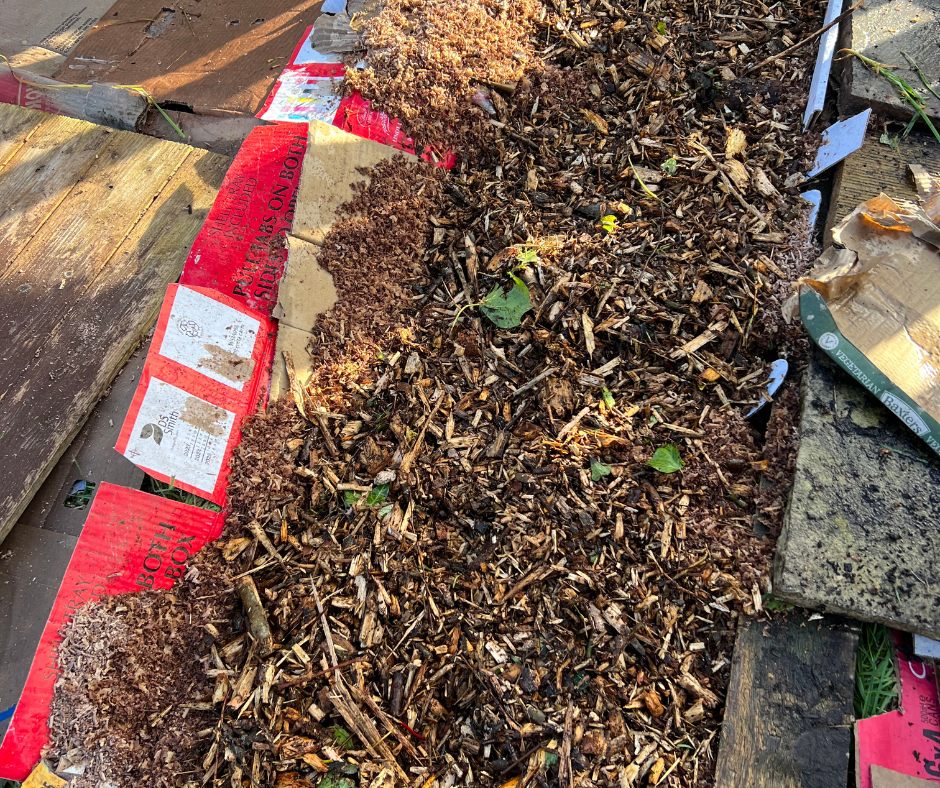
Inorganic Mulch
Inorganic mulch does not break down quickly—or sometimes at all. It is mainly used for weed control and moisture retention but can be difficult to remove if left in place for a long time. Here are some options:
1. Plastic Sheeting
- Effective at weed suppression and moisture retention.
- Often used in commercial vegetable growing.
- Can cause overheating in the summer and needs replacement over time.
2. Rubber Mulch
- Made from recycled tires.
- Long-lasting and excellent for paths.
- Does not provide any soil benefits and may leach chemicals.
3. Stone & Gravel
- Can make soil too hot in summer months.
- Great for dry climates where moisture retention is critical.
- Often used around succulents and cacti.
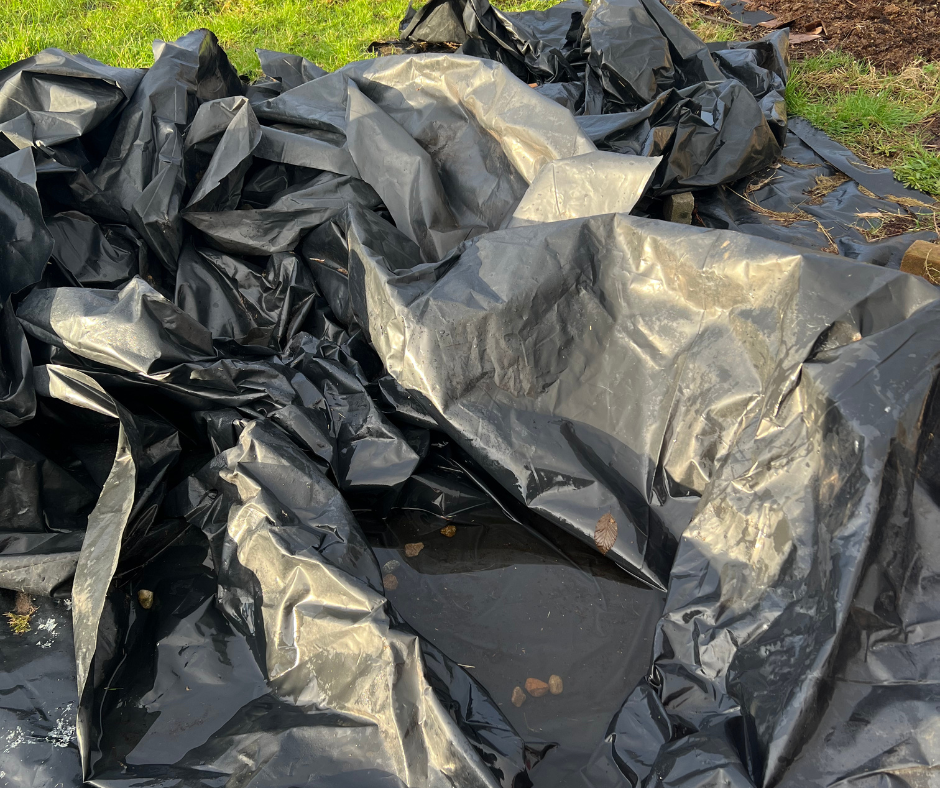
Why Use Mulch in Your Garden?
There are several benefits to using mulch in your allotment garden:
- Weed suppression – Blocks sunlight, reducing weed growth.
- Moisture retention – Reduces evaporation and keeps the soil hydrated.
- Soil temperature regulation – Insulates soil, keeping roots protected in extreme weather.
- Improved soil health – Organic mulch breaks down and enriches the soil.
- Erosion control – Protects soil from wind and heavy rain.
- Aesthetic appeal – Gives a tidy, well-maintained look to garden beds.
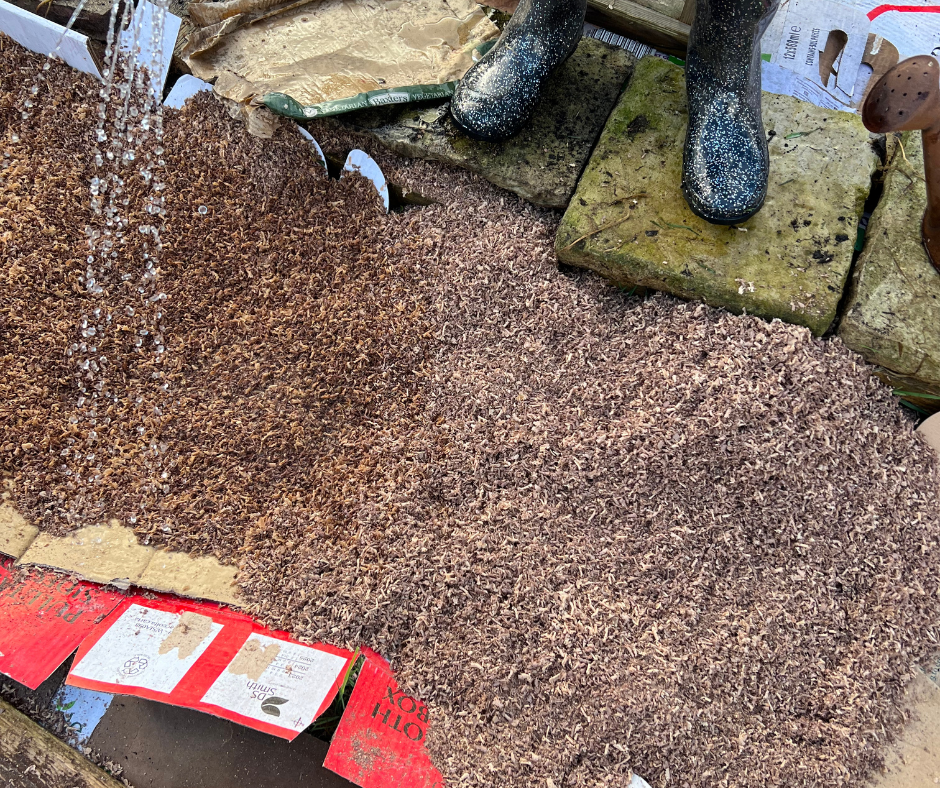
How to Use Mulch Effectively
Applying mulch properly can make a big difference in your garden’s success. Follow these steps:
1. Prepare the Soil Before Mulching
- Remove existing weeds to prevent them from growing through the mulch.
- Water the soil thoroughly before adding mulch to help lock in moisture.
- If needed, add compost or fertiliser before applying mulch to boost nutrients.
2. How Much Mulch to Use
- Wood Chips & Bark: Apply 2–4 inches for weed control.
- Compost & Grass Clippings: Apply 1–2 inches for nutrient enrichment.
- Straw & Hay: Apply 4–6 inches to prevent weeds and insulate soil.
- Gravel & Stones: Apply 2–3 inches to aid drainage and reduce evaporation.
3. Common Mulching Mistakes to Avoid
- Using Fresh Mulch – Some materials, like fresh grass clippings, can create heat pockets and suffocate plants.
- Mulch Volcanoes – Don’t pile mulch against tree trunks as this can cause rot.
- Over-Mulching – Too much can block air and water from reaching plant roots.
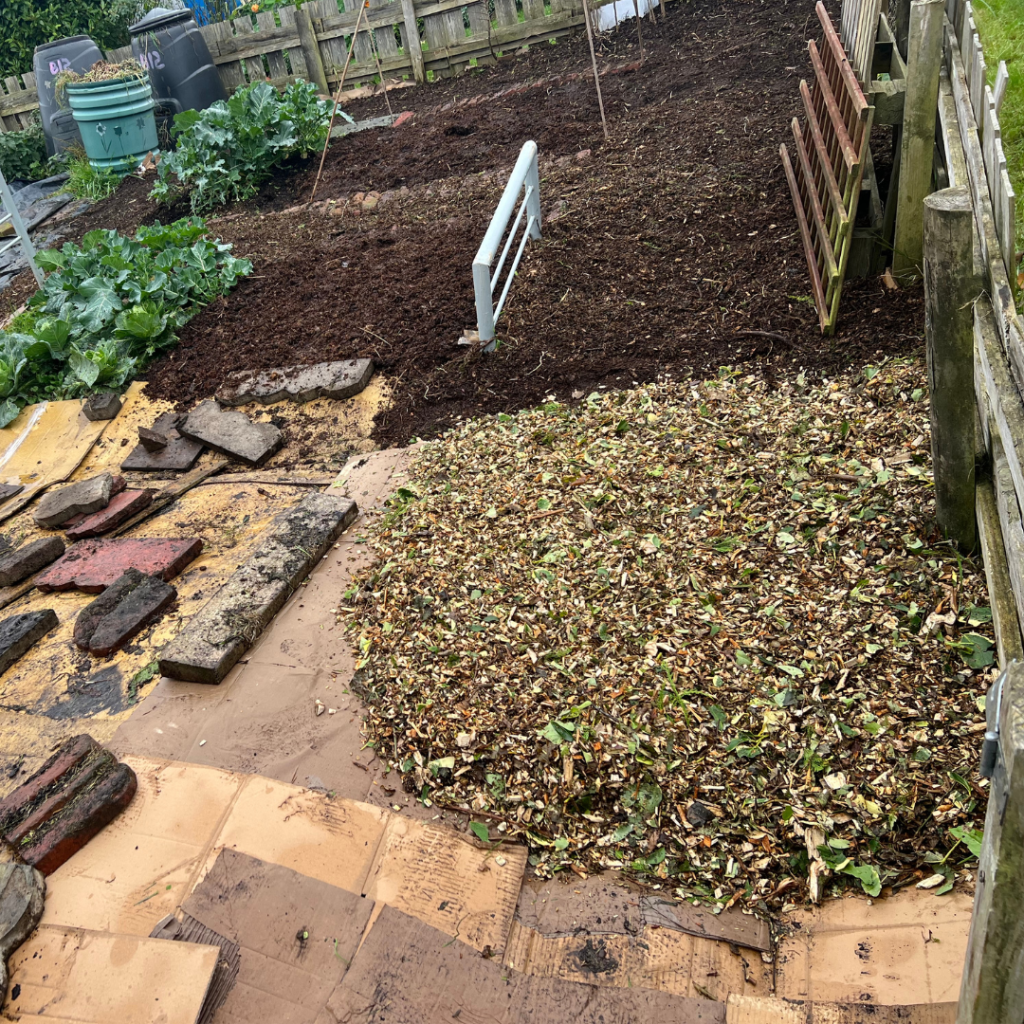
Where to Buy Mulch for Your Garden
Mulch is widely available from several sources. Here are some options:
- Garden Centres & Nurseries – Offer a range of organic and inorganic mulch.
- Online Retailers – Websites like Amazon, B&Q, and garden specialists sell mulch in bulk.
- Local Council or Recycling Centres – Some councils provide free wood chips or compost.
- Farms & Stables – Straw, hay, and manure-based mulch can often be sourced locally.
- DIY Options – Collect leaves, grass clippings, and compost for free mulch alternatives.
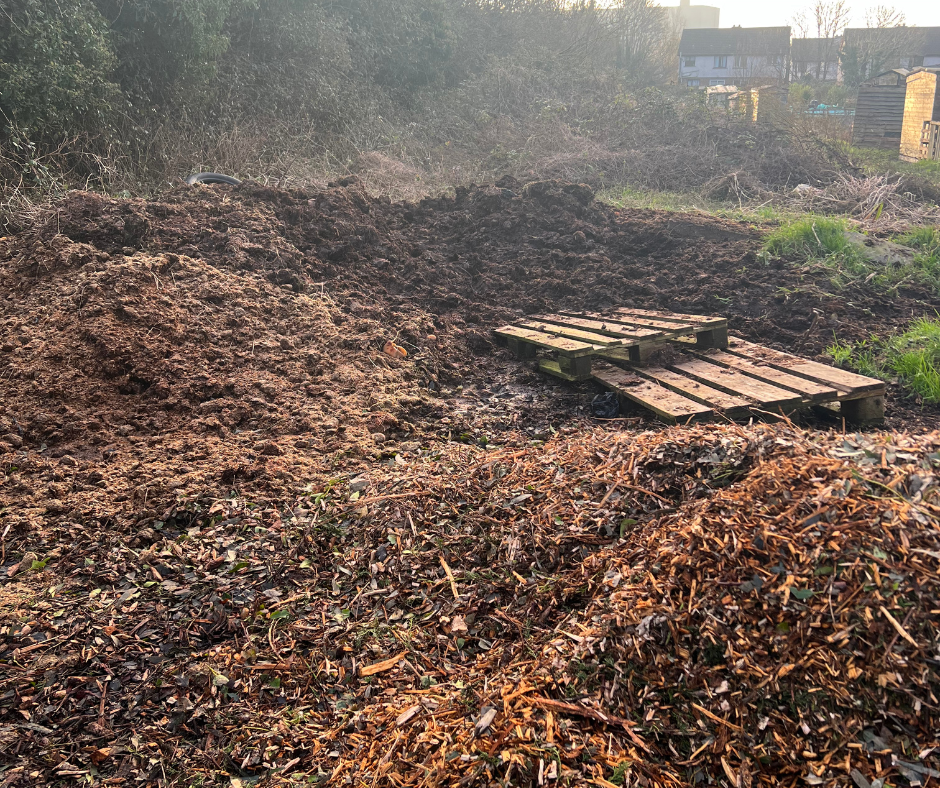
Choosing the Right Mulch for Your Garden
When selecting mulch, consider your plants, climate, and garden goals. A combination of different mulch materials can provide a wider range of benefits. Additionally, rotating or changing mulch types over time can help maintain soil health and prevent nutrient imbalances.
Best Mulch for Specific Plants
- Vegetable Gardens: Straw, grass clippings, compost.
- Flower Beds: Bark mulch, shredded leaves.
- Fruit Trees: Wood chips, leaf mold.
- Herb Gardens: Gravel, straw.
Seasonal Mulching Tips
- Spring: Refresh mulch to retain moisture and prevent weeds.
- Summer: Use light-colored mulch to reflect heat and keep soil cool.
- Autumn: Apply mulch to insulate plant roots before winter.
- Winter: Add extra mulch around perennials for frost protection.
Further Reading and Research
If you have more questions check out these posts:
Next Steps
In my next posts I will discuss the no-dig approach to gardening and how to make your own compost.
If you have any questions or experiences with mulch, feel free to share them in the comments below!

[…] adding a layer of organic mulch or compost, no-dig gardeners create a barrier that suppresses weed growth. This natural mulch also […]